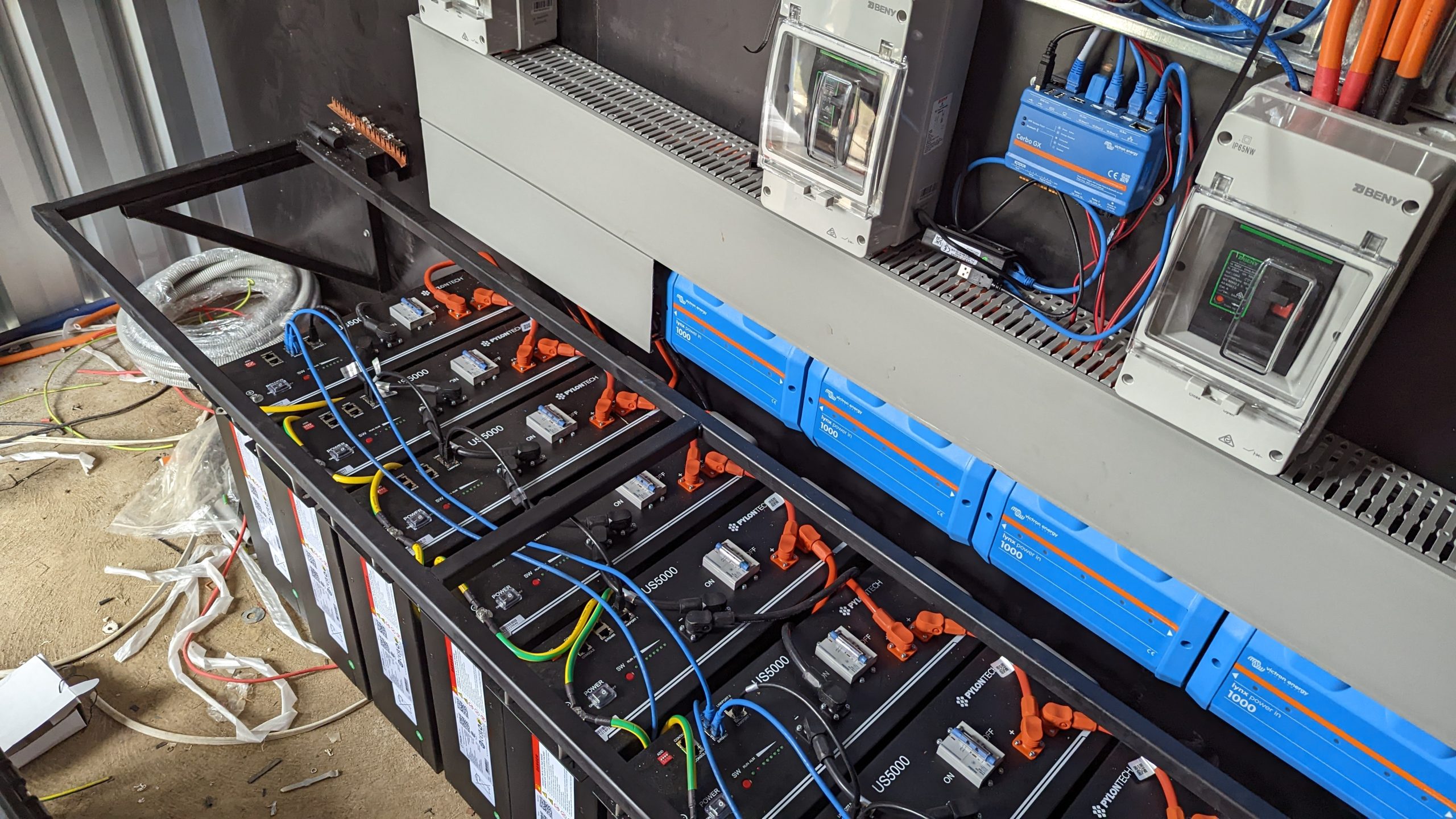 Off-Grid Solar Australia
Off-Grid Solar Australia

In the realm of off-grid solar systems, the spotlight has firmly landed on lithium-ion batteries. Their compact size, minimal upkeep, and remarkable performance have made them a favorite choice. As you delve into the world of solar systems, you might come across terms like “managed” and “self-managed,” referring to various models and brands. These names don’t signal one’s superiority over the other, but rather indicate the battery’s hardware characteristics, installation requirements, and functioning within off-grid setups.
Before we explore the distinctions, let’s understand that all lithium batteries require a battery management system (BMS). This system oversees charging and discharging efficiency, monitors internal temperatures and capacity, and ensures smooth operation. The fundamental difference between managed and self-managed lithium batteries lies in the placement of the BMS: either integrated within the battery or as a separate unit.
Self-managed batteries, also known as “unmanaged” batteries, have an in-built BMS that governs their performance and health. In a bank of five self-managed batteries, you essentially have five distinct BMS units. These batteries connect directly to the solar inverter for charging and discharging, though data and information exchange isn’t part of the equation. For instance, the Australian-designed PowerPlus is a notable brand for self-managed batteries, and it’s a favored choice.
On the flip side, managed lithium batteries don’t feature an embedded BMS. Instead, the entire battery bank links to an external hub termed the battery management unit (BMU), which hosts a central BMS. This BMU connects to the inverter charger via a data cable, enabling a two-way information flow between the battery bank and the inverter. Leading global brands like BYD offer a range of managed lithium batteries, highlighting their prominence. The merits and demerits of managed and self-managed batteries play a pivotal role in your selection process.
Managed Lithium Batteries: Speedy and Precise Charging
Managed batteries boast approximately 25% faster charging compared to self-managed counterparts. The central BMU constantly monitors battery cell temperatures and voltage, optimizing the charging process for speed and efficiency. Moreover, managed batteries offer more accurate state-of-charge readings, providing dependable insights into available stored electricity. However, it’s worth noting their drawbacks. Since managed batteries are linked to a central BMU, the entire system’s performance hinges on its health. A BMU error or a single battery malfunction can trigger a system shutdown. Additionally, uniform firmware is required for the battery bank, preventing the integration of different managed batteries within a single setup.
Self-Managed Lithium Batteries: Straightforward and Modular
Self-managed batteries, each equipped with an individual BMS, deliver remarkable versatility and can easily replace sealed lead-acid batteries. Installation is a breeze as compatibility with the solar inverter isn’t a stringent requirement. These batteries operate individually, ensuring continued function even if other parts of the battery bank encounter issues.
Still, there are downsides. Self-managed batteries charge approximately 25% slower than managed ones due to the lack of direct communication between the battery bank and the inverter charger, leading to less optimized charging. Moreover, these batteries can’t closely monitor their state of charge, potentially resulting in less accurate readouts.
G’day, Australia! We’re here to shake things up in the energy world, right? We’ve got these ripper solar systems, decked out with the latest Sungrow and Deye inverters and those beaut Sungrow and Pylontech lithium batteries. They’re a real game-changer for places like Ballarat, Victoria, and all over Oz! Our Top Solar Gear Going All …
Continue reading “Givin’ Aussie Homes a Fair Go with Top-Notch Solar Tech”
1. Jinko Solar Panels: 2. Trina Solar Panels: 3. SunPower Solar Panels: Conclusion When choosing solar panels, consider factors such as efficiency, durability, warranty, and budget. Jinko offers cost-effective and reliable options, Trina provides a balance of performance and value, while SunPower stands as a premium choice with top-tier efficiency. Each brand caters to different …
Continue reading “Comprehensive Solar Panel Review: Jinko, Trina, and SunPower”
1. Pylontech Batteries: 2. PowerPlus Energy Batteries: 3. BYD Batteries: 4. Tesla Powerwall: Conclusion When selecting a solar battery, factors like capacity, compatibility, longevity, and budget play crucial roles. Pylontech, PowerPlus Energy, BYD, and Tesla offer diverse options catering to different needs and preferences. Whether for a small residential setup or a larger, more complex …
Continue reading “In-Depth Review of Solar Batteries: Pylontech, PowerPlus, BYD, and Tesla”
Inverter Equipment Review: Sungrow, Deye, Victron, and Selectronic 1. Sungrow Inverters: 2. Deye Inverters: 3. Victron Energy Inverters: 4. Selectronic Inverters: Conclusion Each of these inverter brands – Sungrow, Deye, Victron, and Selectronic – offers unique strengths suited to different solar energy needs. Your choice should depend on your specific requirements, whether it’s for residential, …